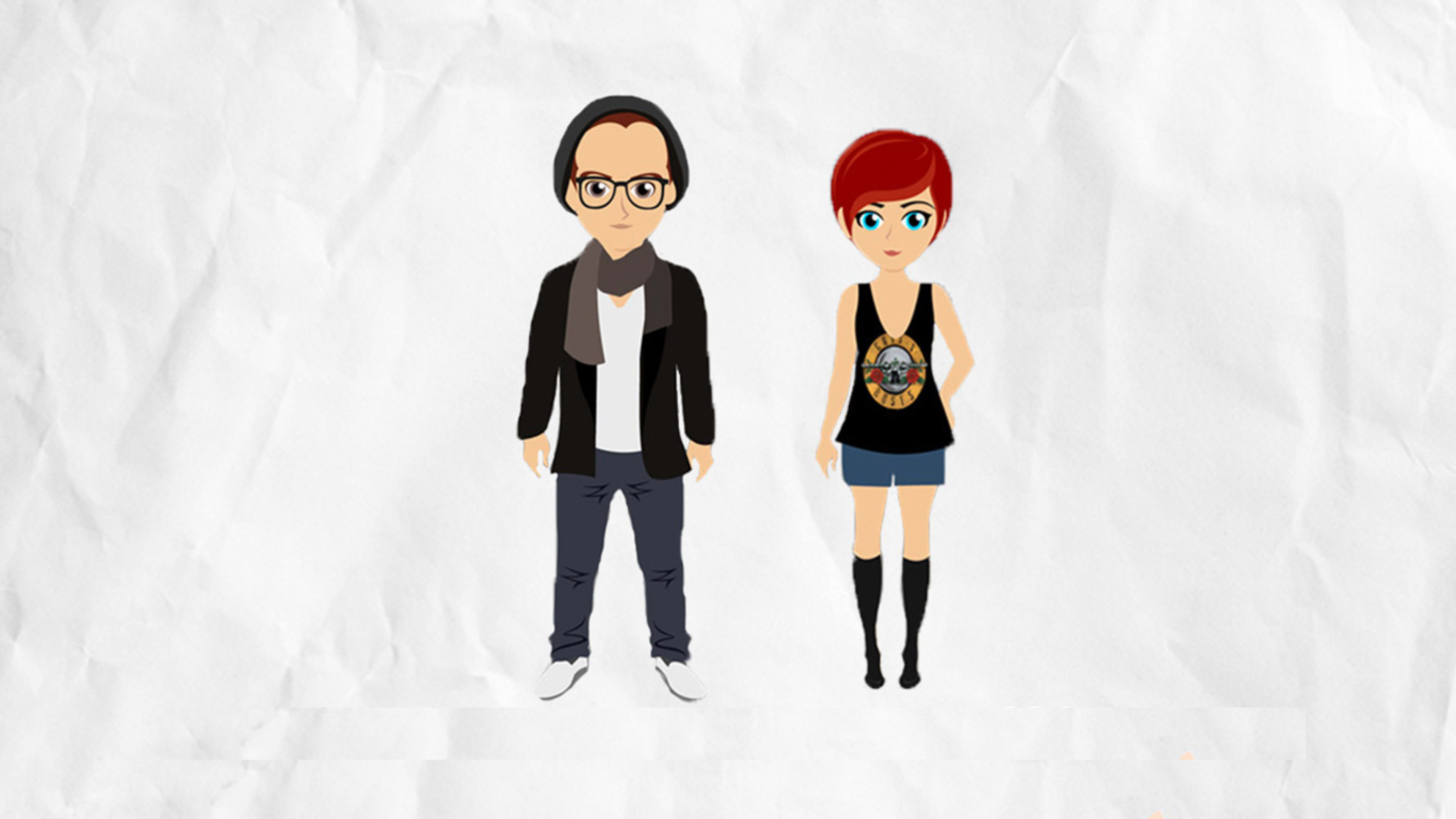By the time I was in college, Facebook had taken over the social scene. When I met my now-husband, we exchanged last names. With a simple friend request, I saw every photo he’d posted since high school, learned which classes he was taking, and eavesdropped on the conversations that friends posted to his wall. Before our first date, I felt like I already knew him.
But did I?
Now, with apps such as Tinder, which handily matches users based on whether each party finds the other attractive, we need not even meet a potential date in person before deciding whether he or she is compatible. Whatever your criteria–knowing details from the depths of someone’s personal history (at least as told by Facebook) or simply making sure that person is hot and thinks you’re hot, too–it’s readily available through a social service, ready to assist your efficient decision-making.
A growing number of social networks want to reverse the trend and stop all those judgements from preceding conversations.

One app called Anomo, for instance, doesn’t show users any specific information about each other. Nor does it show their photos. Instead, it uses avatars and anonymous handles to introduce users to others nearby through an icebreaker game. After they play the game, a compatibility quiz (i.e. “What time did you go to bed last night?”), they can send each other messages and unlock information about themselves, such as their photos and interests, as they become friends. “All we’re doing is mirroring how life works,” co-founder James Sun tells Fast Company. “In life, when we meet people, we don’t say, ‘Tell me about your whole life on the first date.’ We learn about people over time.” The app, which launched in June, has a modest daily userbase of about 4,000 people.
Associating your name with a public profile, Sun argues, is too much pressure for introverts who fear social consequences. Anonymity provides a safe place to get to know each other before sharing your life story and appearance. Whisper is another app that uses anonymity to change the way social interaction happens online. Its founder argues people can be more honest versions of themselves if they’re not worried about grooming a profile. “We’re living in a time when people learn about their friends based only upon what you want them to see,” Whisper CEO Heyward told Mashable. “We wanted to create this place where people can share things about themselves from a different lens.” A service called “Social Number” seems to be angling for a similar effect by assigning its users numbers rather than usernames with its tagline, “express yourself, freely!,” and Spraffl, another app that lets anyone post anonymous updates tagged to their location, boasts that it is “completely open.”

Consistent among these services is the idea that anonymity helps people portray themselves more like they actually are, whether that means sharing things they wouldn’t share on Facebook or showing off their personalities rather than a misleading profile photo.
The thing is, Tinder makes the same claim. “The way Tinder works is the way people tell us they see the world,” Tinder’s CEO, Sean Rad, told BusinessWeek earlier this year. “They walk around, they see girls, and they say in their heads, ‘Yes, no, yes, no.’”
And so does Facebook. “If you live in a town or village and you meet someone, you introduce yourselves to each other,” Richard Allan, Facebook’s director of policy in Europe, told the Wall Street Journal. “It wouldn’t be a very effective, or happy, or well-functioning community if you started to give a different name to every person you met in the street.”
It’s probably more accurate to say that neither Tinder nor Anomo nor Facebook is the way people actually interact in person. That’s the point of using them.

In real life–which as many have pointed out, is a category that digital life fits into–some people share less and some people share more. Some people assess potential dates based solely on their appearance and others want to know everything about them before going on a date. This is also true to some extent on all of these services–no matter how they’re designed.
Anomo provides a way for people who aren’t comfortable sharing their information or photo with the world a way to meet each other, but when I log in, the feed has plenty of cleavage-highlighting selfies mixed in with its honest status updates and icebreaker quiz requests. The first message I get on Whisper is from someone who wants to know how old I am, whether I’m married and what I look like. At the same time, users of Tinder are free to have long conversations before meeting up and not all users of Facebook post their entire life stories.
There is, however, one benefit of using anonymous social networks to meet new people that seems more clear-cut.
“It’s kind of hard to stalk an avatar,” Sun says.
Recognize your brand’s excellence by applying to this year’s Brands That Matter Awards before the early-rate deadline, May 3.
